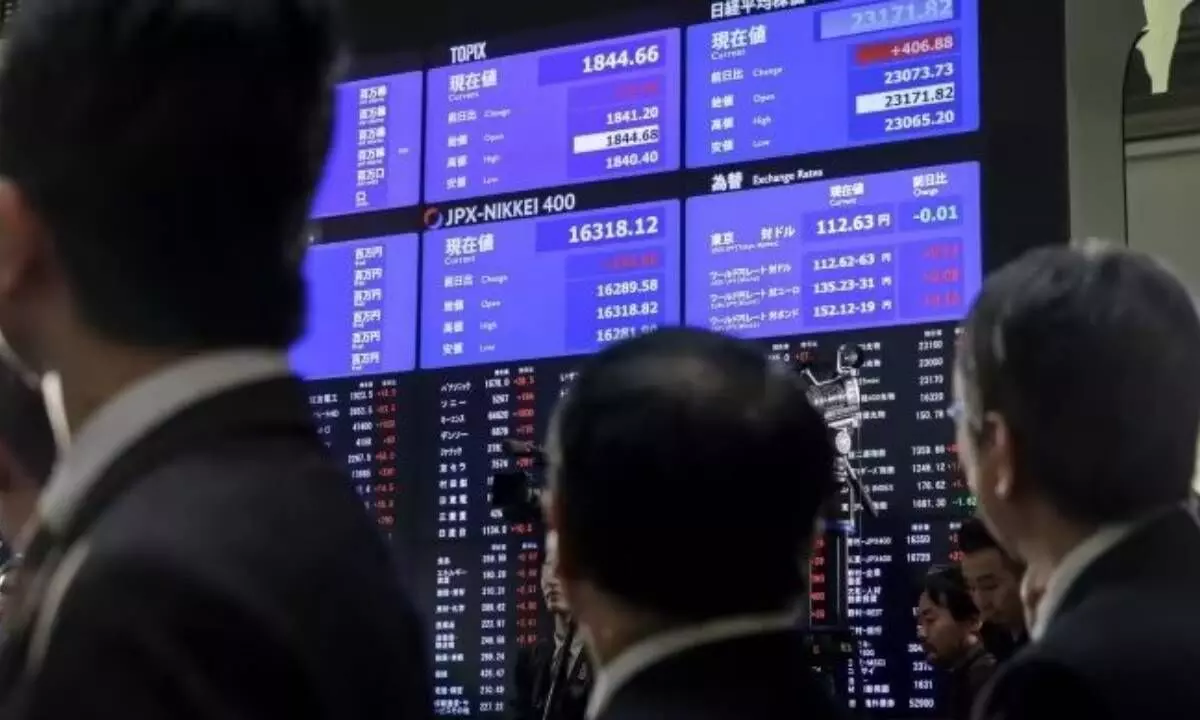Global indices retreat on weaker China Q2 growth
Seoul and Shanghai ended lower. Equity markets in Europe were trading mostly in negative territory. The US markets ended on a mixed note on Friday
image for illustrative purpose

Bangkok Shares retreated in Asia and Europe on Monday after China reported weaker growth than forecast in the last quarter. Oil prices fell more than $1 a barrel. Germany’s DAX edged less than 0.1 per cent lower to 16,097.87 and the CAC-40 in Paris declined 0.7 per cent to 7,323.91. Britain’s FTSE lost 0.1 per cent to 7,424.61. The future for the S&P-500 was nearly unchanged. That for the Dow Jones Industrial Average was down 0.1 per cent. Markets in Japan were closed for a holiday and Hong Kong’s market was shuttered due to a typhoon. The Shanghai Composite index dropped 0.9 per cent to 3,209.63 after China reported its economy grew at a 6.3 per cent annual pace in April-June. That’s better than the 4.5 per cent expansion in the January-March quarter but well below forecasts of over seven per cent.
The economy is expected to slow further in coming months, though investors will be expecting moves from Beijing to prop up growth. So “the data will be viewed through the lens of how it will influence the policy decisions made at the upcoming Politburo meeting in late July,” Stephen Innes of SPI Asset Management said in a commentary. In Seoul, the Kospi shed 0.4 per cent to 2,619.00, while Australia’s S and P/ASX 200 edged less than 0.1 per cent lower, to 7,298.50. Bangkok’s SET gained 0.8 per cent and the Sensex in India was up 0.5 per cent. On Friday, Wall Street’s latest winning week closed with a mixed finish following stronger profit reports than expected from several big US companies. The S and P 500 slipped 0.1 per cent while the Dow industrials rose 0.3 per cent. The Nasdaq composite fell 0.2 per cent. The earnings reporting season is just getting underway, and once again Wall Street’s expectations are low. Analysts are forecasting the worst drop in earnings per share for S&P-500 companies since the spring of 2020. That would mark a third straight quarter where profits sank. Such expectations are key for financial markets, because one of the biggest factors behind a stock’s price is how much profit the company earns. Wall Street nevertheless rallied hard this week thanks to rising optimism about the other major lever that sets stock prices: how much investors are willing to pay for each $1 of corporate profits.
Two reports earlier this week showed that inflation continued to cool across the US economy in June. That bolstered investors’ hopes that the Federal Reserve is close to feeling comfortable enough to halt its blistering campaign to raise interest rates.

